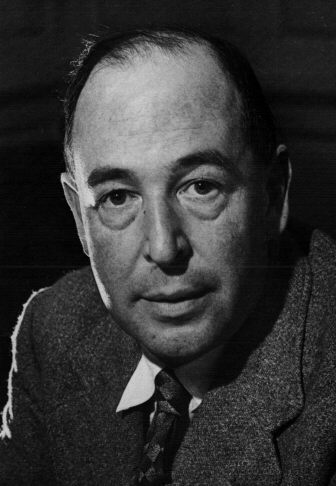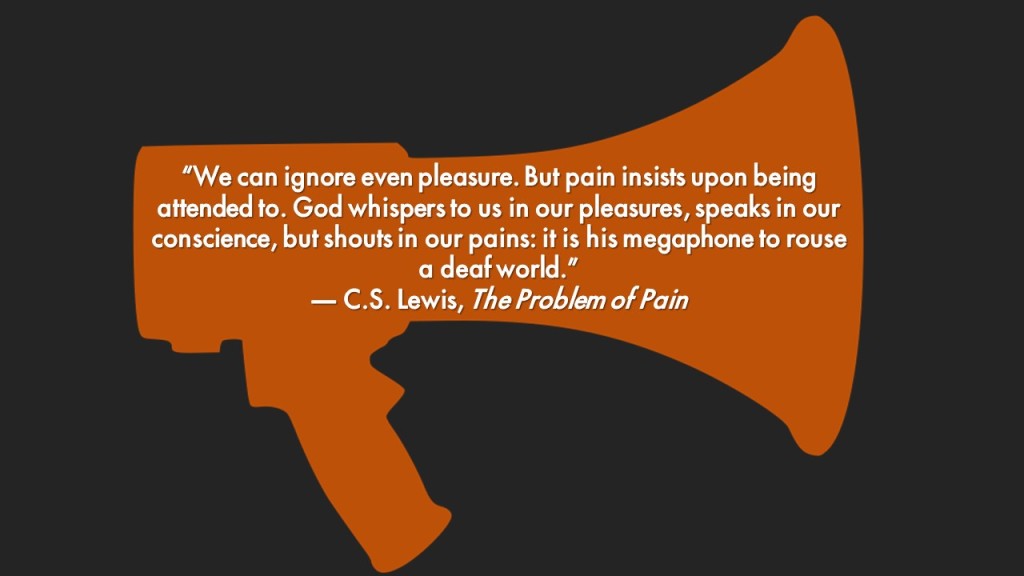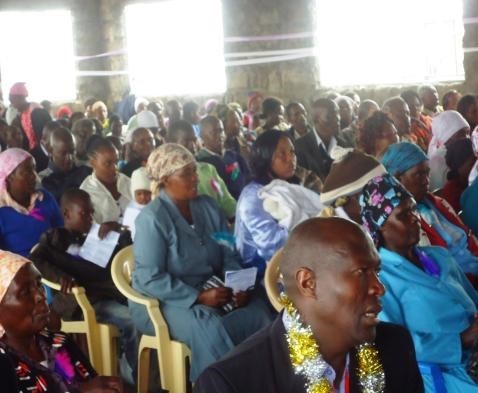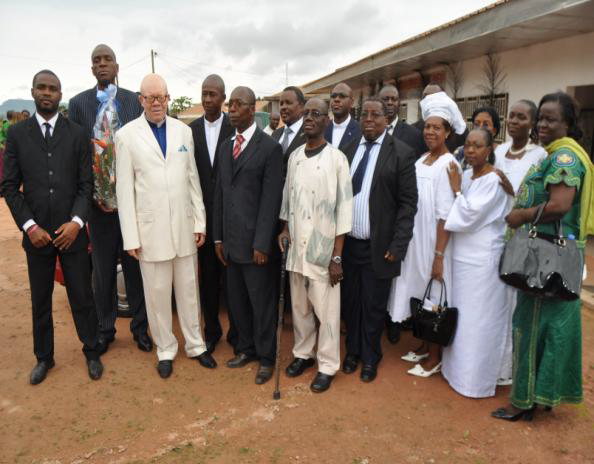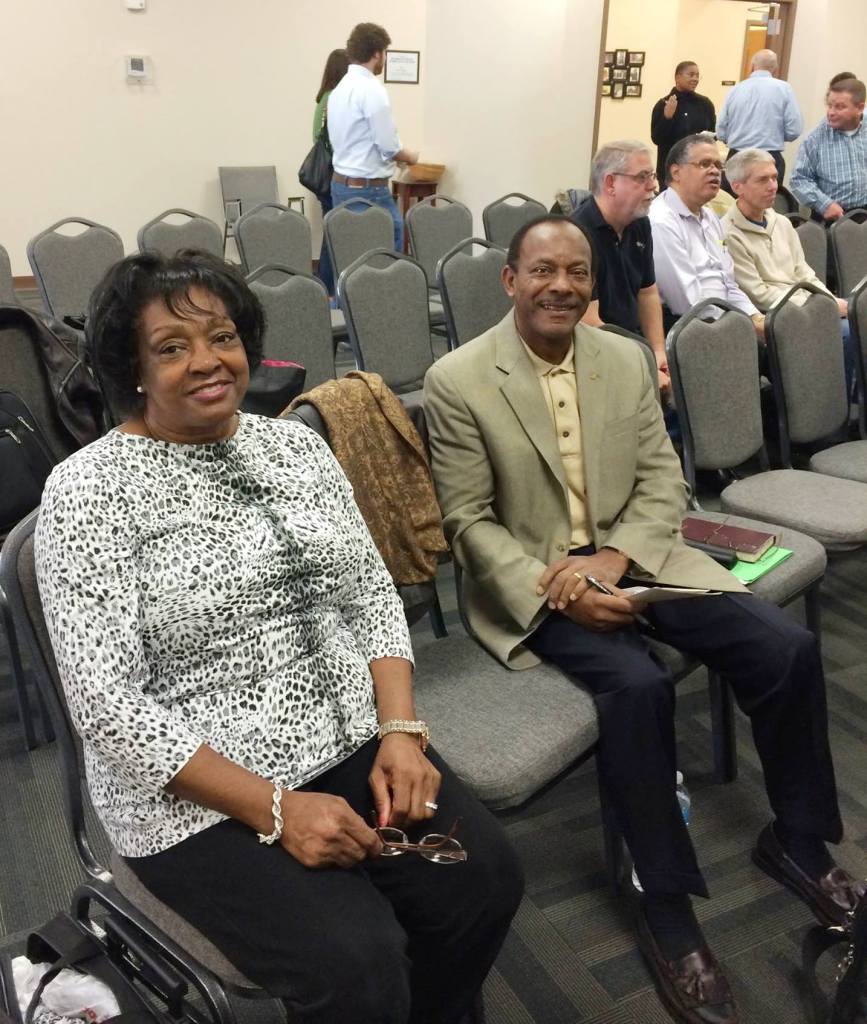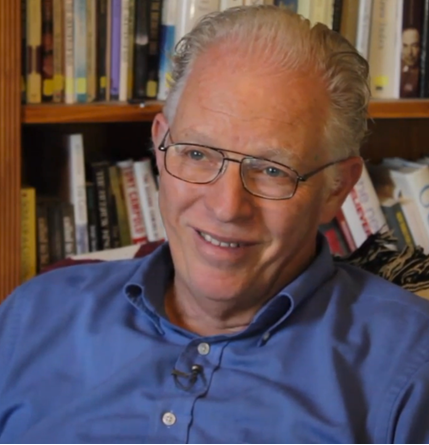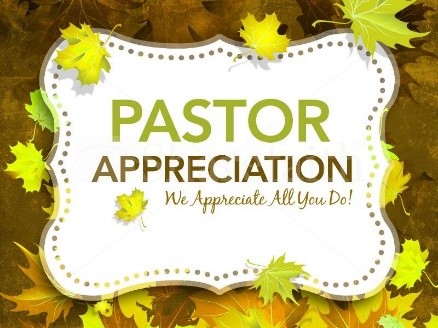In an essay entitled “Guidelines to an Understanding of the Person and Work of the Holy Spirit,” Dr. Gary Deddo offers an incarnational, Trinitarian perspective on the doctrine of the Holy Spirit. We are publishing his essay serially in seven parts. Here is part five (to read other parts, click on a number: 1, 2, 3, 4, 6, 7).
The Spirit in relationship to the church
What is the Holy Spirit’s work in the life of the church, in the life of the believer? Think of times when we repent, as a whole church or as individuals. Our repentance is the result of the ministry of the Spirit who brings us the conviction of sin. Why does anyone ever repent and not hang on to their pride and remain in self-justification mode all their existence? Because the Holy Spirit works. We don’t see the Holy Spirit working in a direct way. Most of the work of the Holy Spirit is deep and internal to persons, speaking with their spirits as Paul put it (1 Corinthians 2:9-11). We don’t see the Holy Spirit acting, but we see the results at the end of the working of the Holy Spirit, like the wind.
So we see evidences of the ministry of the Spirit. When we’re hearing God speaking his word, when we’re seeing the face of the Father in the face of the Son, when we’re repenting, when we’re grasping the Word of God, when we’re interpreting the Scripture as God intends, then we’re experiencing the effects of the Spirit. But we don’t see the gears turning—we don’t watch the machine running. But we see the results, the outcome. Most of the work of the Holy Spirit, as far as I can tell, is invisible to us. What we see is the result, the effect.
The Spirit seems to deliberately not draw attention to himself. He is the shy one, the humble one, the retiring one, or as T.F. Torrance put it, the “self-effacing one.” In other words, he doesn’t show us his own face. The Spirit is not worried about that. Each person of the Trinity gives glory to the others. The Spirit has his own way of giving glory.
Even in the names of the Divine Persons, we find an asymmetry. Father and Son are mutually referential terms that speak of a concrete Father-Son relationship. Thus these terms are easier to think about than is Holy Spirit, which does not lend itself as easily to being described using creaturely terms. Has the Holy Spirit gotten short-changed once again? Maybe not. Perhaps that’s how it’s supposed to be. Maybe being given that identifying name is not a mistake. Maybe the name, the Holy Spirit, is given in order to prevent us from trying to nail down his identity in the same way we might the Father and Son. Perhaps that “inequality” is meant to lead us to identify with and pay primary attention first to the Father and Son. And perhaps by being named Holy Spirit, we are kept from merely reducing the Father and Son to creaturely definitions, thinking God is Father and Son in just the way human beings are. After all, Scripture can refer to the whole God as Spirit. The Holy Spirit reminds us of the transcendence, the sovereignty, the irreducibility of God to an idol, made by human hands or minds and imaginations.
Given the pattern and content of biblical revelation about the Spirit, we should not expect to be able to have as much to say, or be able to say in as much detail as we can say about the Father and the Son. Though we would expect some disproportion, it does not indicate inequality of importance among the Divine Persons.
Why not correct simply by focusing on the Spirit?
If we have under-represented the Spirit up to this point, not making use of what we have been given to go on, why not simply take time to shift our focus of attention to the Spirit—attempting simply to bring about a proper symmetrical balance? Why not attempt to make up for lost time, giving the Spirit his turn on stage, even if just a temporary one? The danger to watch out for in attempting to correct in this way is giving the Spirit independent consideration, somewhat in isolation from the revelation of the Son and of the Father in him.
Why is this a problem? Because the Spirit doesn’t have his own independent ministry. The Holy Spirit’s ministry is to deliver to us all the benefits of the work of Christ—the benefits he accomplished as the Son of the Father, sent from him and returning to him that we might know him. This work of the Spirit can’t be grasped apart from the working of the Father and Son. And the working of the Father and Son must include sooner or later an appreciation for the “behind the scenes” working of the Spirit. So the best way is to move in our understanding from the Son to the Father and then in a more focused way to the Spirit, bringing all three into coordination.
To be a little facetious, it isn’t as if the Spirit says, “Jesus, you did that awesome work on the cross. You took your turn and accomplished that great task. I know everyone will praise you for it, but now it’s my time to get some attention. I’m going to go off and take my turn to accomplish my own mission, and so make my own addition to what you’ve done.” That kind of thinking regards God as dividing up his work and will into a division of labor, each relatively separate from the others. But the will and working of God can’t be sliced up that way. That splits God into parts and separate roles or tasks as creatures would. It obscures the oneness of God in being and in action. A simple way to point to the unity of the working of God—while allowing for distinction of contribution to the one whole work—is to say that what Christ has done for us according to the will of the Father, the Holy Spirit does in us. That’s about the simplest way you can put it, not that more couldn’t be said, and probably should be said.
When we say that the Spirit takes all of what Christ has done for us in his humanity and delivers it to us, does that amount to little or nothing? No, not at all. From the Holy Spirit’s point of view, that’s everything! The Holy Spirit cannot accomplish his deepest work except on the basis of what Jesus, the Son Incarnate, accomplished for us in the name of the Father. They are one God. They are all together Savior. The Father sends the Son. The Son sends the Spirit. And this was all done so we might have the life of the whole Triune God over us, with us and in us.
As T.F. Torrance has expressed it, it seems that rebellious human beings can share in God’s kind of life (eternal life) only after it has been worked out in such a way that it can fit us fallen creatures. That means we first need to be reconciled to God and, second, have our human nature regenerated, sanctified, made new. And that’s what God accomplished in the incarnate Son, who assumed our human nature. He reconciled and transformed it, perfecting our human nature, so that the Holy Spirit could indwell us and make us share in Jesus’ sanctified humanity. The Holy Spirit could not come and take up residence in us (“indwell” is the New Testament word) until the Son has completed his incarnate work in our fallen humanity.
So, I don’t think we’re leaving out the Holy Spirit when we say that the Spirit takes what the Son has done and delivers and builds it into us. It would be senseless for the Spirit to say, “I need my own ministry apart from the Son.” They’re one in being. They’re one in act. They’re one in mind, one in heart, perfectly coordinated in their ministry to give us a share in God’s own eternal life, and each contributes in his own way.
The whole God is Savior God—Father, Son and Spirit. The Spirit does lead in working out in us what Christ has accomplished for us in his humanity. That’s a marvel. The Spirit does work in us in unique ways. That is why Jesus says it’s an advantage that another Comforter come to us, to deliver to us and within us his life, by the indwelling of the Spirit—the Spirit who is the Spirit of Jesus, the One who has accomplished everything for us in his human nature.
You can see the problem if, wanting to give the Spirit equal time, we were to say, “Yes, Jesus did this, but the Spirit does that,” then focus on “that” as if it were an independent mission. But there is no independent mission—the Father, Son and Spirit work entirely together in an ordered and coordinated fashion. That insight ought to guide our thinking, our explanations, our preaching and teaching about the Spirit. Describing their joint mission requires mutually referring to one another, because the Spirit is the Spirit of the Son and the Spirit of the Father. That’s who the Holy Spirit is. The working of the Spirit is to work out in us what the Son has done for us.That’s an amazing, glorious thing.
Unique manifestations of the working of God by the Spirit
As noted already, there are particular manifestations of the Spirit’s work—times and ways in which he is active at the leading edge, as it were, of what the Triune God is doing. The Spirit’s relationship to creation, post-Christ’s incarnate ministry, is dynamic and variable, rather than static, fixed or mechanical. His ministry is personal and relational. This was seen at Pentecost when the Spirit came down. No human agency initiated, conditioned or controlled that event. No believer set it up, orchestrated it, or made it more or less likely to occur. Rather, Jesus had promised its fulfillment in the name of the Father. His work, promise and sending is what pre-conditioned that mighty, longed-for event pointed to by the prophets. And Jesus indicated that this even would be at the Father’s initiative, according to his timing. The church was simply to wait. That’s it.
Why at that particular time? Because Christ in his earthly form had finished his dimension of the saving work that God was accomplishing. So of course, the Spirit was aware of Jesus’ promise. The Spirit was promised by the Son. And perfectly coordinated, the Spirit showed up on time. But notice what happened when the Spirit descended. The people started talking about the great and mighty things that God had done to accomplish their salvation in Jesus. They didn’t just focus on the immediate amazing event they had just experienced! And they related to each other in new and amazing ways, just as the Spirit was working in them in new ways. But notice they didn’t just focus on the Spirit, or their experience of the Spirit. Their view was much larger, much more comprehensive of all that God had done, was doing and would do.
Pentecost is a primary example of a manifestation of the working of the Spirit that is dynamic, variable, not static, not fixed, not mechanical, but personal and relational. In Paul’s admonitions to not quench the Spirit or not grieve the Spirit and to be continually filled with the Spirit, we also see anticipation of a dynamic interaction with the Holy Spirit. Paul is not thinking of a situation in which the switch to the Holy Spirit is sometimes in the “on” position and at other times in the “off” position. In Paul’s view, the Spirit is never completely absent as though he were a billion miles away, having nothing to do with anything and then immediately near and causing everything to happen, almost magically. The Spirit does not operate in that way. Instead, there is a real and dynamic interaction between God’s people and the Spirit. He can apparently be present in a wide array of ways, or at least in a range of ways that have a wide array of effects we can notice.
“Being continually filled with the Spirit” is a good way to understand the places in his letters where Paul talks about our relationship with the Spirit. The Spirit should not be approached as if he’s a vending machine: put in the right coins, push the right button and get your soda or your candy bar or something else. No, it’s not contractual or automatic. The relationship is not simply a matter of being “on” or “off.” It’s not a mechanical relationship. It is dynamic. It’s like the wind blowing.
Let’s look at another aspect of the manifestation of the working of the Spirit in the church—the gifts of the Spirit. These too involve dynamic interactions. So Paul encourages believers to use them in certain ways: let the person with the gift of giving, he says, give with liberality; those who give aid, with zeal; those who do acts of mercy, with cheerfulness (Romans 12:6-8). Gifts can be used well or misused. They are to be received and then used well, rightly, faithfully. That is a dynamic process, not a magical chain of effects impersonally sparked.
It’s easier to think of the working of the Spirit in mechanical terms, isn’t it? Especially if we think of the Spirit as an “it”—an impersonal power, energy, like electricity. Just on or off; here but not there; near or far. But God is not like that. And I suppose we could say that the Spirit, especially, is not like that!
There is a particular dynamic to living in the Spirit. The Spirit is living and moving—acting as an intelligent agent; interacting with us in a deep and personal way—even acting in ways of which we aren’t aware. Often, by the time we become aware, the Spirit probably has already moved on to another thing. Yes, we’ll likely recognize his activity and then proclaim, “The Spirit was working and we were blessed!” But by the time we do, the Spirit may already have moved on to another “project.” The Spirit is active and moving!
There is a variability, a change, a dynamic, an ebb and flow to the activity and manifestation and interaction with the Spirit in relationship to the Church and in relationship to the world. So we ought not think of the Holy Spirit as an impersonal force, a vending machine or conveyor belt. Another way we can think mistakenly of the Spirit is as a genie or a magician. In this case we approach the Spirit thinking, “If I’m going to be blessed by the Spirit, I’ll have to do things just right. I’m going to have to rub the lamp exactly three times and say just the right words and then the power of the spirit-genie will work for me or those I love.” But that’s an impersonal, mechanical approach that is just as misguided as the idea that we must take the initiative, believing that the working of the Spirit is unlocked (or not) by us. Unfortunately it’s not difficult to find erroneous teachings like this—ones suggesting that we should act towards the Holy Spirit as if “it” was a magical power, much like a genie. And what we have to do to get the Spirit to work in that way is to fulfill certain conditions just exactly right—then (like magic!) the Spirit somehow is set free to accomplish his ministry on our behalf.
Of course, these special techniques promoted by some for activating the Spirit don’t involve rubbing a lamp just the right number of times. Other conditions are laid out, some sequence of events under our control are specified in order to “prime the pump” or to “release the Spirit” to work. And if the Spirit doesn’t show up, the explanation will be: “You didn’t get things quite right. You weren’t sincere enough. You didn’t have enough faith. You weren’t humble enough. You were stuck in your head and thinking too much. You didn’t ‘let go’ enough to ‘let God.’” In essence, such explanations say the spirit-genie is not going to come out because you said “abracadabro” instead of “abracadabra.” Or you said it with the wrong accent! Or…, or…, or…. Any number of conditions might be specified. And each teacher of such false views will specialize in describing and prescribing exactly which conditions are called for.
Notice how these wrong-headed approaches put us in charge, making the Spirit dependent upon us with little to say for himself. Such approaches make our relationship with the Spirit one that is legal (contractual), mechanical and conditional. Like a genie or some mechanical power, the Spirit has no more choice in the matter than electricity has when you plug in your TV or turn on your lights. Imagined here is a cause-effect relationship from us to the Spirit. Only when the conditions are just right can the Spirit do its work. And when the conditions are set just right, apparently the Spirit is unable to decide, “No, I’m not going to do your bidding!” We set the agenda and the Spirit somehow comes under obligation to us!
Unfortunately, we can think about the Spirit in these impersonal ways—as an “it” rather than the very personal God that he is. Sadly, we can easily find teachers who lead us in those wrong directions. But we don’t need to go down those dead-end paths. We can have more faithful understandings that stay more closely tied to the actual teaching about the nature and character of the Spirit in relationship to the Father and Son as made known in Scripture and experienced in the church of the New Testament times.
Next time, we will look at various issues related to the Holy Spirit’s continuing ministry.
 I’ve often heard worship leaders begin a service by declaring, “God is good,” to which the congregation replies, “all the time.” “And all the time,” the leader continues, to which the audience replies, “God is good.” This statement about God is, of course, true. Most Christians believe it fervently. But many, in the privacy of their own thoughts, wonder, “If God truly is good, why is there so much pain in the world?” It’s difficult to reconcile belief in God’s goodness with the presence of pain in the world, even if we believe that, in the end, our good Creator gives the kingdom of heaven as the ultimate solution to pain.
I’ve often heard worship leaders begin a service by declaring, “God is good,” to which the congregation replies, “all the time.” “And all the time,” the leader continues, to which the audience replies, “God is good.” This statement about God is, of course, true. Most Christians believe it fervently. But many, in the privacy of their own thoughts, wonder, “If God truly is good, why is there so much pain in the world?” It’s difficult to reconcile belief in God’s goodness with the presence of pain in the world, even if we believe that, in the end, our good Creator gives the kingdom of heaven as the ultimate solution to pain.